Activities
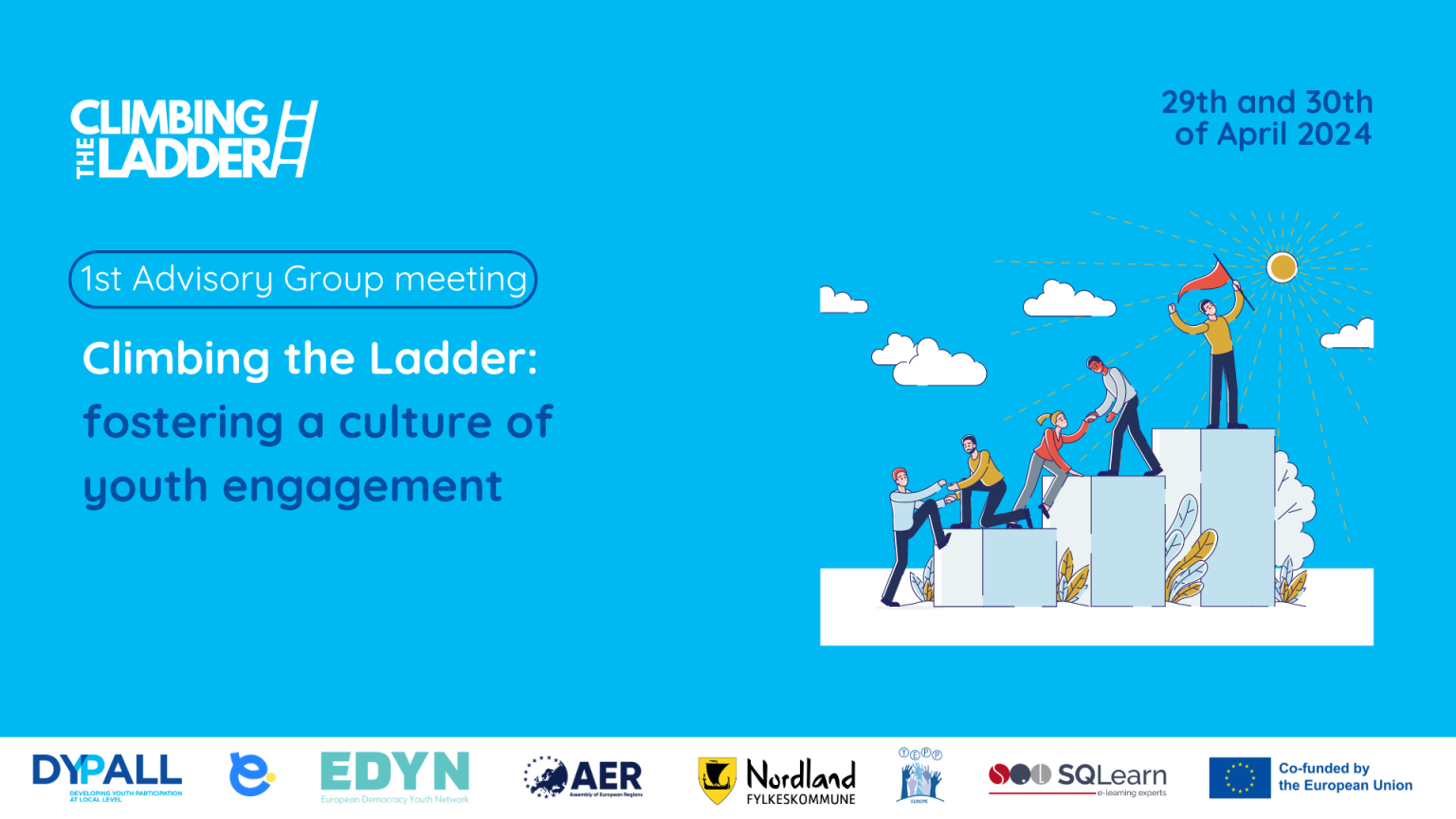
Online panel
The Online panel as a kick-off event was held on the 19th of March 2024 on Zoom. The purpose of this online panel was to introduce the project and to provide a platform for stakeholders from various countries to come together and exchange their ideas and experiences regarding models and mechanisms of youth engagement. It brought together a diverse range of stakeholders in the youth field, including non-governmental organizations, municipality representatives, researchers, youth workers, and youth leaders.

Study visit in Norway
From 12th-18th August, the first study visit of the Climbing the Ladder: fostering a culture of Youth Engagement (CL-YE) project took place in Bodø, Norway, which is the first European Capital of Culture north of the Arctic Circle.
Participants from partner organizations participated in the AER Summer Academy, a biennial event, which was this year co-organized with Nordland County. The Summer Academy brought together European regions to exchange best practices of youth participation and inclusion through culture. The event featured panel discussions, interactive workshops, and a visit to Kjerringøy, a historical site offering a glimpse into Norwegian cultural heritage.
The final days of the study visit focused on understanding the structures and frameworks supporting youth participation in Nordland. Participants from partner organizations gained firsthand experience by visiting Nordland County and engaging with representatives from the Nordland Youth Council, the Unge Stormen youth programme, and First Scandinavia, an organization pioneering innovative educational methods. These visits provided insights into Nordland’s approach to youth engagement and the county’s supporting structures.
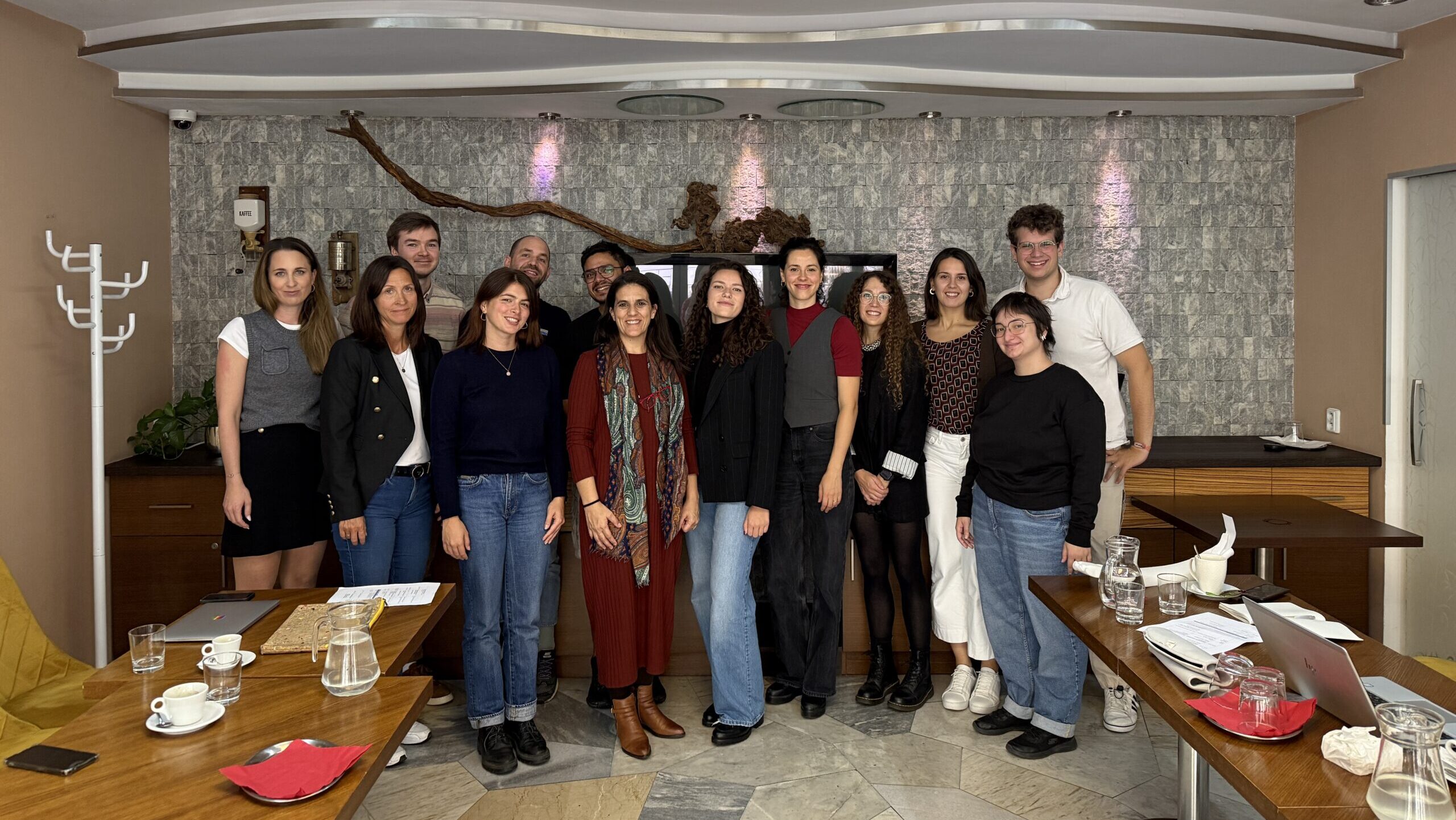
Study visit in Bratislava and Vienna
The study visit in Bratislava (Slovakia) and Vienna (Austria) from October 7 to 11, 2024, brought together 12 international participants from six countries as part of the consortium project.
The visit offered an opportunity to learn from best practices in youth engagement, participatory budgeting, and youth-centered policies. The aim was to observe and engage with youth leaders and policymakers involved in participatory budgeting and youth-centered policies, utilizing innovative participatory mechanisms.
The activity was conducted through meetings with policy-makers, diplomats, youth delegates, think tanks, and national youth councils, by engaging in interactive sessions with our twelve participants, sharing best practices and lessons learned from the programs and models they implement on youth engagement.
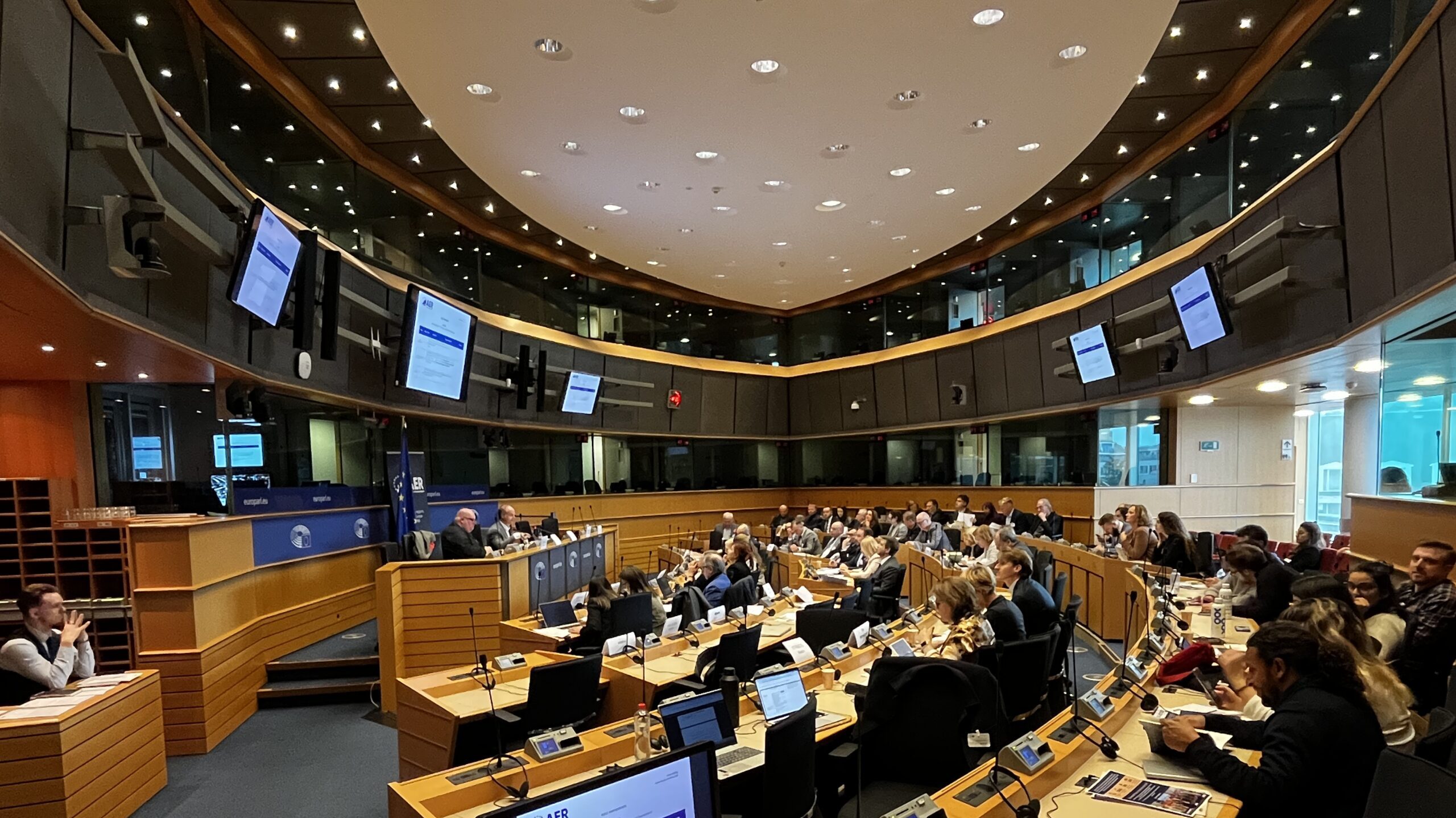
Study visit in Brussels
Developed and designed within the Climbing the Ladder project activities, the third and last study visit of the project was specifically structured to observe and learn how the EU institutions are addressing the youth engagement topic and how many institutionalised structures and mechanisms of youth engagement there are at the EU level and the national level in Belgium. It gathered 10 international participants from December 2nd to 6th.
The study visit to Brussels was a hands-on experience for participants to connect with relevant EU institutions active in the field of youth engagement while also meeting important stakeholders such as different regional authorities, the European Youth Forum – a focal point in advocating for youth participation and engagement – and a representative from one of the three Belgian Youth Council, the ‘Conseil de la Jeunesse’.
The itinerary included tours and interactive sessions at the European Economic and Social Committee (EESC), the European Education and Culture Executive Agency (EACEA), the Committee of the Regions (CoR), and the Council of Europe liaison office in Brussels. Participants gained insights into how these institutions address youth issues and promote active participation, while acquiring new connections with external stakeholders to foster cooperation in the field.
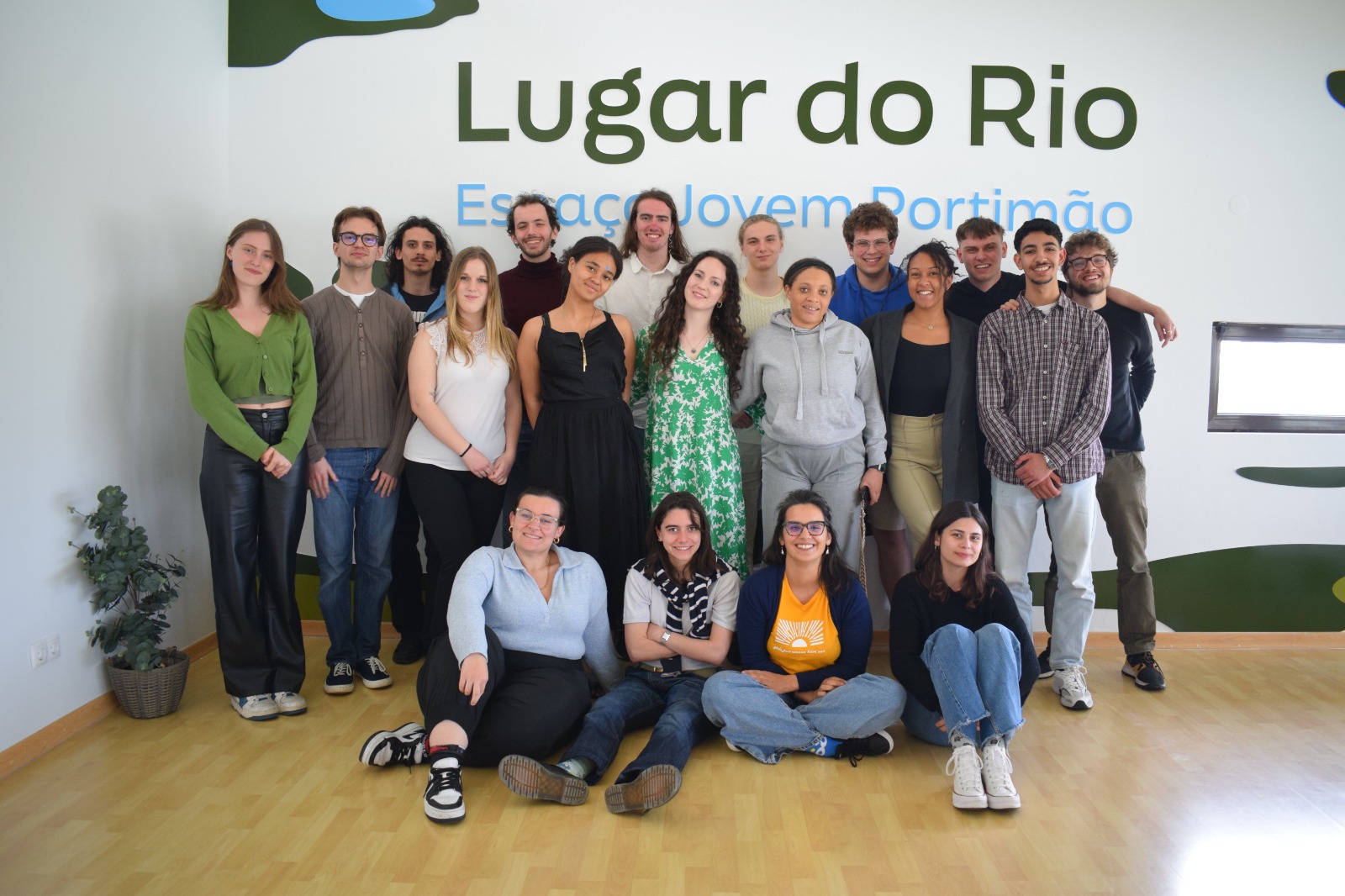
Training for youth facilitators for democracy
DYPALL Network hosted the first training course for the Pool of Youth Facilitators for Democracy from 7th to 12th April in Portimão, Portugal, bringing together 16 young leaders from 11 different countries, all of whom are actively engaged in the youth sector within their local communities.
The primary objective of this training was to equip young people aged 18 to 25 with the necessary tools, knowledge, and skills to support organisations in implementing or enhancing mechanisms for youth engagement. Using non-formal education methodologies and guided by experienced trainers, participants were immersed in a dynamic learning environment where they could share experiences, develop competencies, and build networks with peers from across Europe.
Key sessions of the training included:
- Exploring skills and competencies of a Youth Facilitator
- Parallel workshops on EU funding and research in the youth sector
- Introduction to the CL-YE publication “Guidelines on Models and Mechanisms of Youth Engagement”
- Development of the “Toolbox for Youth Facilitators”
This initial training is an important step in the CL-YE initiative. The pool of facilitators will meet again for a strategic meeting in Italy in September 2025, organised in cooperation with Europiamo ETS, to continue capacity building and further develop the project outcomes.
You can read the full report here
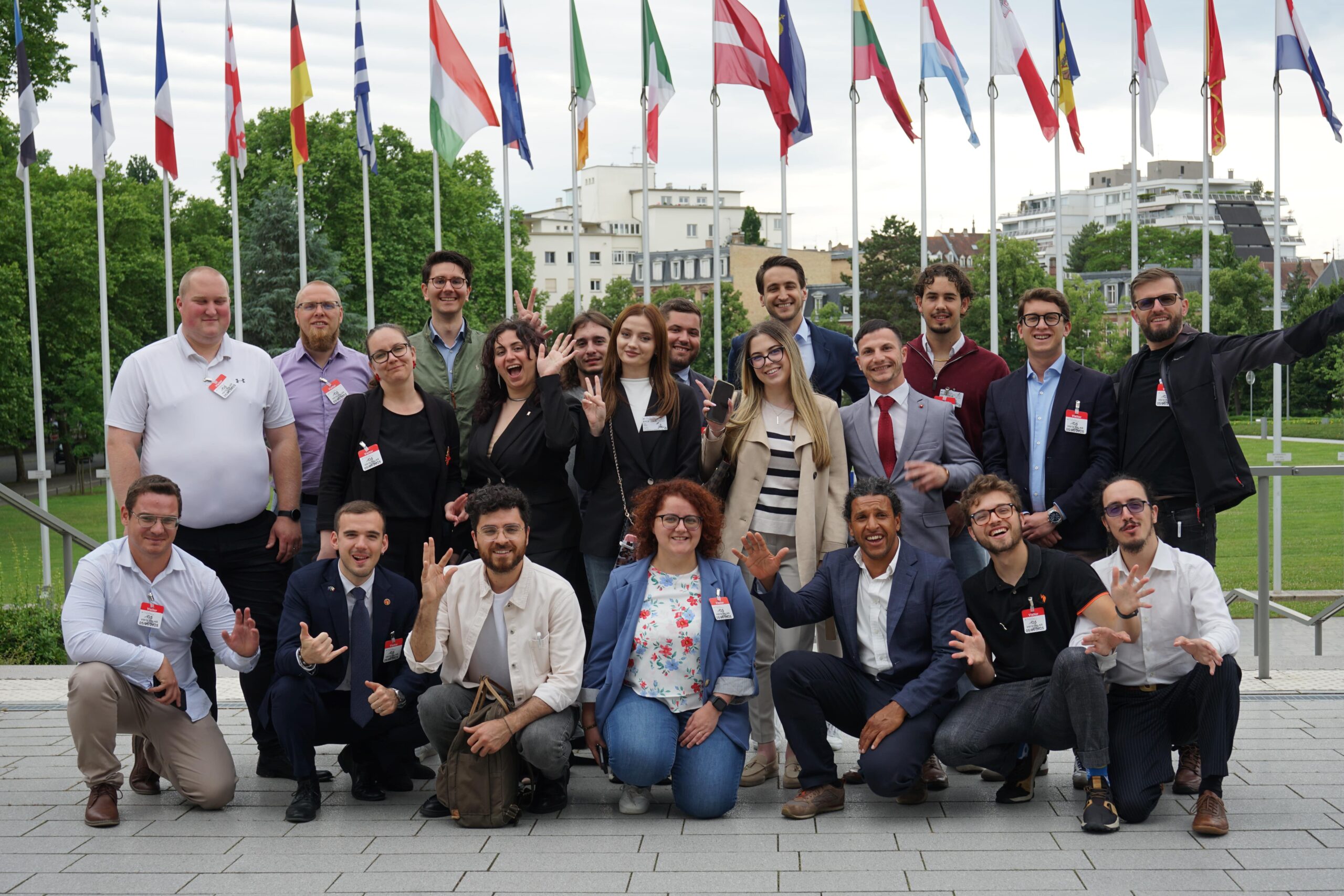
High-level meeting with young elected officials
From 3rd to 6th June 2025, we welcomed at the European Youth Centre Strasbourg (France) our Network of Young Elected Officials, a key element of the CL-YE project. Through this initiative, we aim to connect like-minded policymakers from across Europe and create an informal yet impactful network of elected officials who stand out for their commitment to inclusive governance and youth participation.
The in-person seminar brought together 27 participants from Portugal, Italy, France, Estonia, Poland, Greece, Ireland, Romania, Austria, Malta, and the Netherlands, who shared a common goal: to engage young people in policy-making meaningfully.
The event offered spaces to exchange experiences and to reflect on different structures of youth participation and their adaptability in different contexts. Participants started the event by exploring the CL-YE project, its background, activities and resources, with a focus on the two main project outcomes:
The program was enriched by study visits to the Palais de l’Europe, headquarters of the Council of Europe, and to the municipality of Strasbourg. Finally, our guest speakers presented the work of the Council of Europe on youth participation through the Council of Europe Youth, the Congress of Local and Regional Authorities, the European Youth Foundation, and the EU-CoE Youth Partnership.
The Network of Elected Officials is coordinated by the two project partners DYPALL Network and the European Democracy Youth Network (EDYN).
You can check the full report here
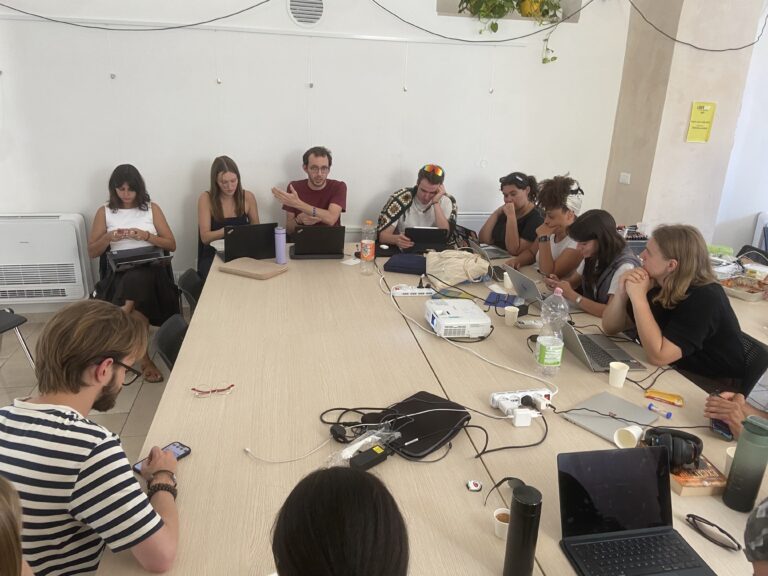
Strategic meeting for the Pool of Youth Facilitators for Democracy
Within the “Climbing the Ladder – Fostering a Culture of Youth Engagement (CL-YE)” project, Europiamo ETS and DYPALL Network co-hosted the strategic meeting for the Pool of Youth Facilitators for Democracy. The activity took place from 1st to 6th of September in Altamura, Italy, bringing together the same 16 young leaders from 11 different countries (already trained last April in Portugal), all of whom are actively engaged in the youth sector within their local communities.
The two key objectives of the strategic meeting were:
– to re-connect and explore recent project developments;
– to create a strategic plan with common objectives and possible (local) actions to generate an impact in their communities, thus contributing to high-quality youth engagement mechanisms.
You can read the strategic plan here
Key sessions of the activity, supported by two experienced facilitators, included:
– creating a group manifesto to reflect on shared vision and group identity;
– parallel workshops on youth policy development and key steps to apply for EU funding opportunities;
– drafting a strategic plan for the pool of youth facilitators for democracy;
– preparing an inspirational letter for the stakeholders that will make use of the project’s digital platform;
– updating the structure and content of the individual “Toolbox for Youth Facilitators”.
This second in-person activity has been a crucial step in the project, allowing the pool of facilitators to continue investing in capacity building, further developing the project outcomes and designing follow-up actions.
You can read the full report here

International online multiplier event
The ‘Youth Participation Toolfair: Sharing and Connecting Ideas’ was organized on the 13th November 2025 in the form of an online workshop dedicated to exploring and strengthening youth participation. The event was for policy makers, youth workers, and young people from across Europe, who shared their perspectives on youth civic engagement practices, and heard about the key outcomes and outputs of the project.
During the interactive session, participants had a chance to:
- Gain practical tools to encourage youth participation in your local area
- Network with policymakers, youth workers, and young people from all over Europe
- Discover new models of youth participation
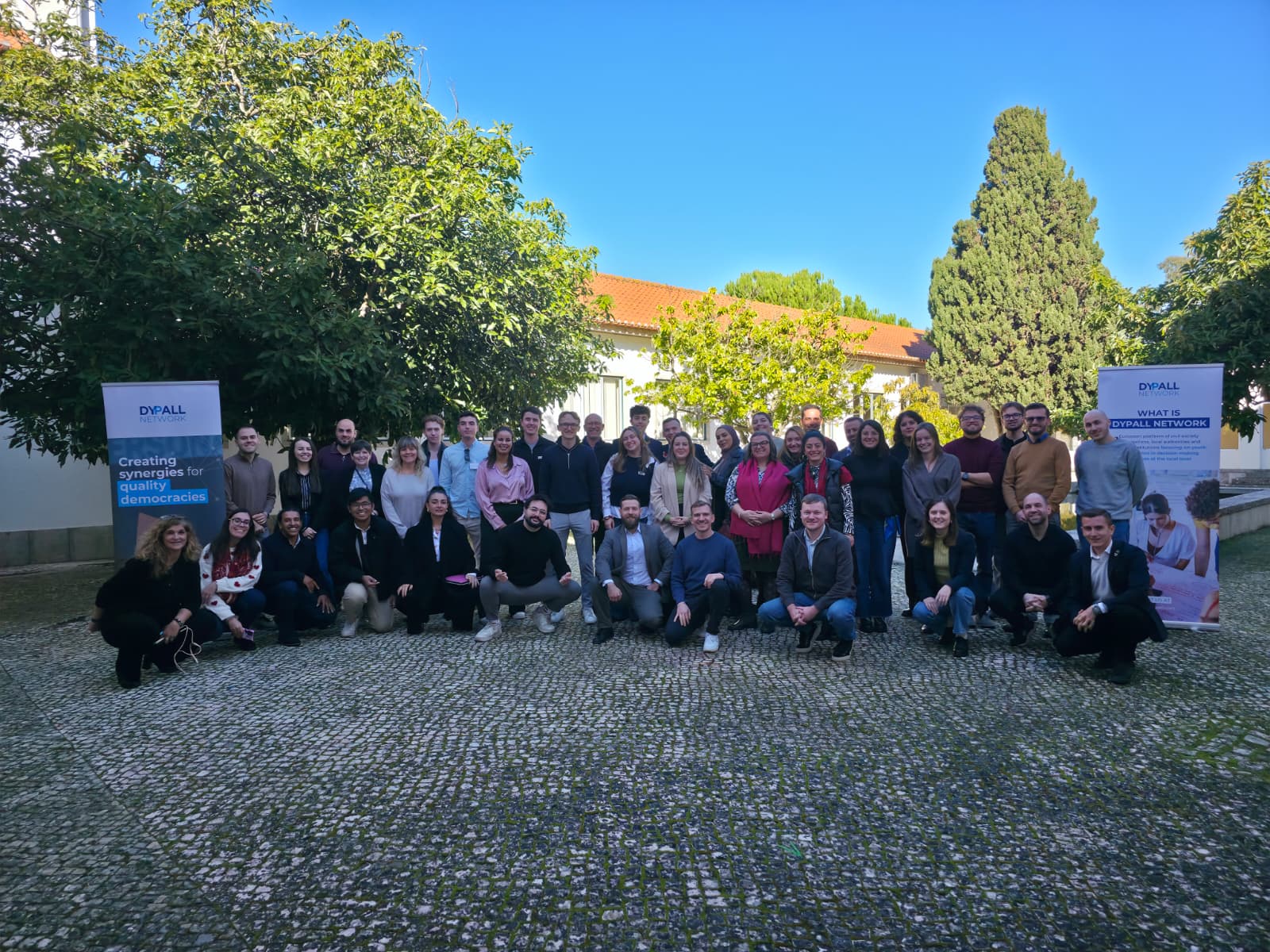
Final international conference
From 25 to 28 November 2025, DYPALL Network hosted the Final Conference “Towards a more youth-oriented society – starting from a meaningful youth engagement” in Cascais, Portugal. The event marked the conclusion of the Erasmus+ project “Climbing the Ladder: fostering a culture of Youth Engagement” and represented an important milestone in the collective journey towards strengthening youth participation across Europe.
Organised in close cooperation with the Câmara Municipal de Cascais, the conference brought together representatives from partner organisations, local and regional authorities, youth workers, and other key stakeholders. Over two dynamic days, participants engaged in an inspiring programme focused on innovative mechanisms for meaningful youth engagement at local, regional, and European levels.
The conference served as a space for reflection and celebration, highlighting the achievements, lessons learned, and impact of the Climbing the Ladder project. Through discussions, workshops, and exchanges of good practices, participants explored how youth engagement can be embedded more effectively in decision-making processes and institutional frameworks, contributing to more inclusive and youth-oriented societies.
Read the full report here.
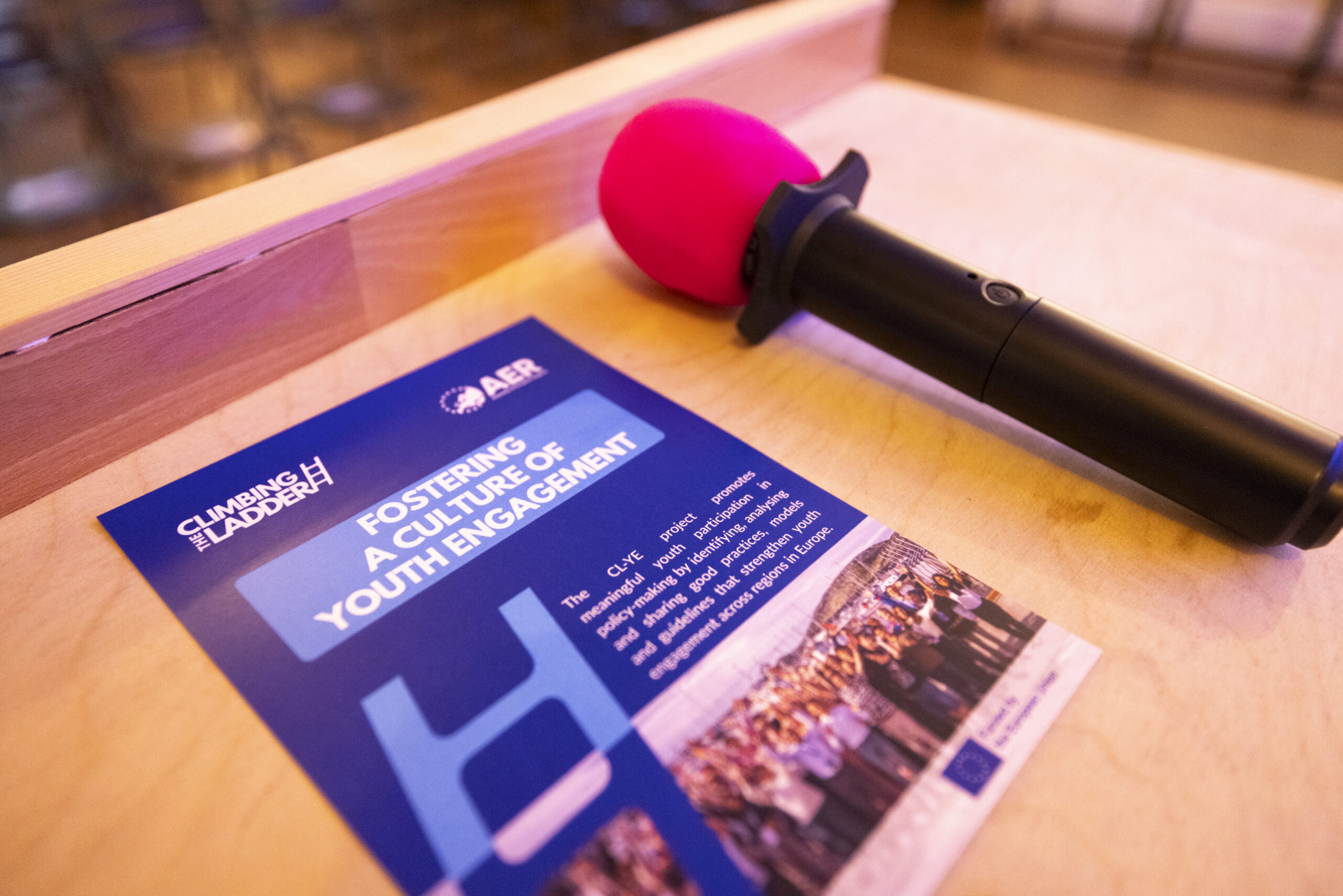
Local multiplier events
The series of multiplier events brought together a diverse group of participants – including students, youth workers, educators, policymakers, and young activists – to explore and discuss the innovative tools for youth engagement that were collected, analysed and shared throughout the project.
The events focused on several key objectives:
– Sharing best practices and case studies to inspire inclusive participation models.
– Adapting participatory mechanisms to local contexts, addressing challenges like limited access to decision-making and youth disengagement.
– Fostering collaboration among youth organisations, policymakers, and practitioners to co-create actionable recommendations.
– Building sustainable networks to support long-term civic involvement and mentorship.
Through interactive workshops, participants engaged with tools such as the Ladder and Thermometer models, analysed successful participation mechanisms, and discussed solutions like Youth Banks, digital platforms, and Participatory Budgeting. These discussions emphasised the importance of legal frameworks, mentorship, and community support to prevent burnout and ensure meaningful youth involvement.
The events also served as platforms for networking and resource-sharing, enabling participants to map existing youth engagement resources and develop tailored recommendations for their regions. By empowering young people and strengthening collaborative networks, the multiplier events advanced the goal of creating inclusive, effective, and sustainable structures for youth participation in democratic processes.
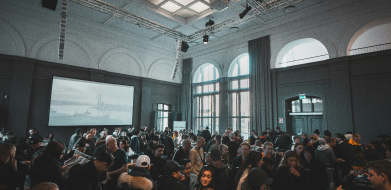
Local multiplier events
Each partner will implement a local multiplier event to share the main outcomes of the project and the produced outputs (Collection of models/mechanisms, good practices and case studies, qualitative guidelines, digital platform).
